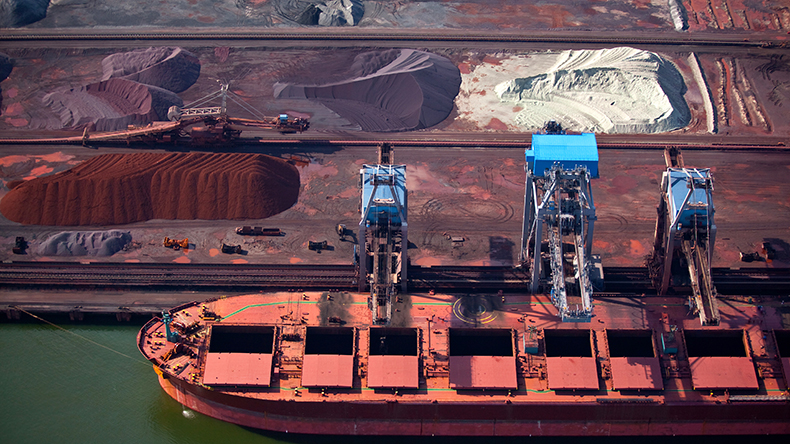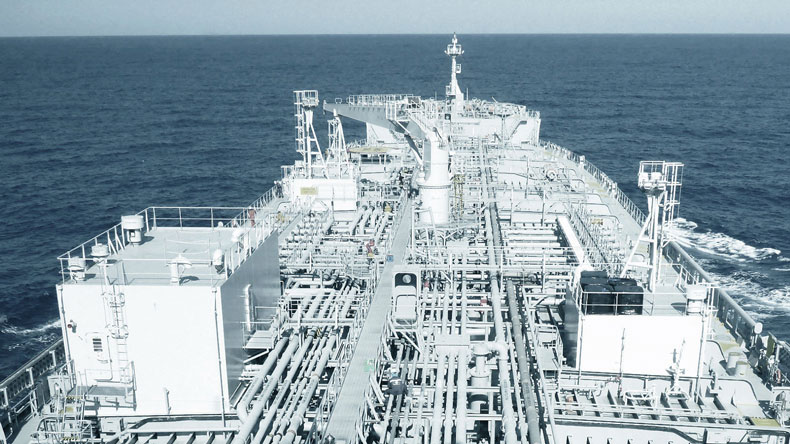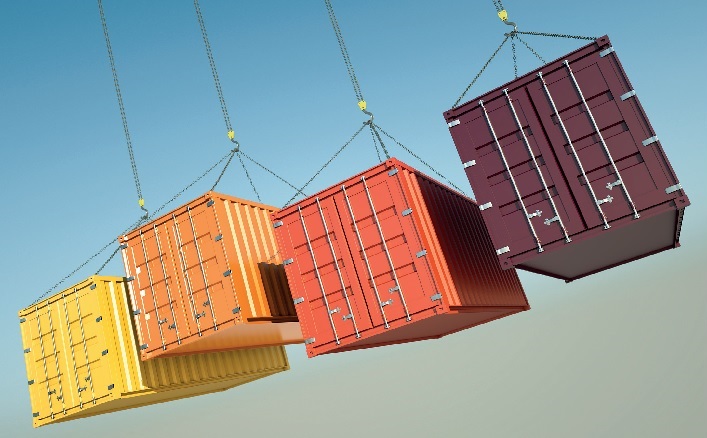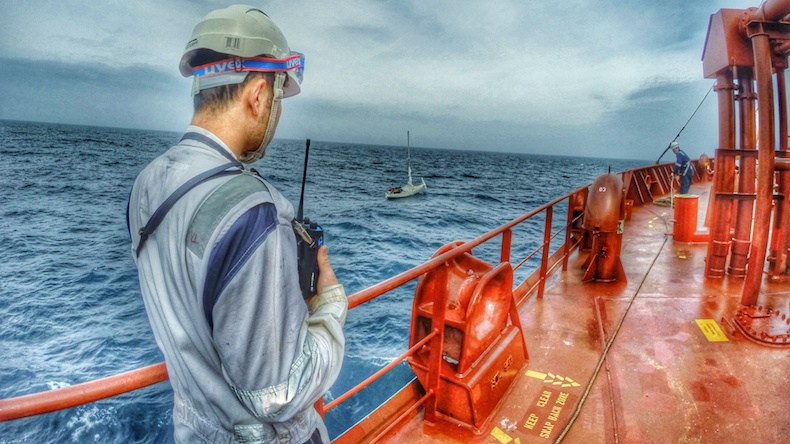Weekly briefing: Floating storage at record high; downbeat quarterly earnings
Volume of crude on tankers at highest level ever but ‘peak of storage crisis’ may have passed. Early impact of coronavirus pandemic becoming more visible as companies reveal financial results
The peak of the crude oil storage crisis may now be over as production cuts have come in ‘harder and larger’ than previously expected, and this is reflected in falling spot rates for both crude and product tankers
THIS weekly briefing provides sector-by-sector coverage of the coronavirus outbreak and its impact on shipping, direct from the Lloyd’s List team.
Follow the links within the text to the relevant news items in each market segment.
Tankers
Floating storage, defined as laden tankers at anchor for 20 days or more, is at record levels as producers seek avenues to store surplus crude amid an estimated 30% drop in oil demand over the past two months and shortage of land-based tanks.
However, the “peak of the crisis” for oil storage has passed, according to oil trader Trafigura.
The co-head of oil trading said in a recent newspaper interview that global production cuts were coming “faster and larger than we expected”.
That is reflected in spot rates for both crude and product tankers, which soared to record highs last month for all sizes on the back of the demand for rising shipments and port delays for unwanted or unsold cargoes. Spot rates have dropped from stratospheric rates of $150,000 to $200,000 per day for some tanker types over the week and are now at half the levels seen in late April.
Six-month period charter rates for a VLCC are at $75,000 per day but in the long term, 12-month period rates are down by $15,000 over the week at $67,500, according to shipbroker Braemar ACM. Long range tanker period charters remained steady, as gasoline, jet fuel and other cargoes remain unsold as road and air transport demand remains in the doldrums.
India’s oil minister Dharmendra Pradhan revealed this week that some 7m tonnes of crude bought by Indian refiners is currently in floating storage due to an acute lack of land-based alternatives.
The 7m tonnes includes three very large crude carriers, one aframax and three suezmaxes for storage in the past month, according to Lloyd’s List Intelligence data.
Containers
The outlook for container shipping remains grim this week, with little prospect for any signs of recovery.
With the first quarter reporting season just getting under way, the early impact of the pandemic is becoming visible. Ocean Network Express, which published its year-end figures, which closed on April 30, reported a full-year profit but a loss in its latest quarter.
It warned that the global economy was deteriorating owing to the coronavirus-led slowdown, which was affecting the global supply chain. It had already begun large-scale blankings but uncertainties would remain after May.
Hong Kong’s Orient Overseas Container Line, now part of state conglomerate China Cosco Shipping, saw volume on the main east-west trade lanes increase in the first quarter of this year, despite the coronavirus fallout, but total volumes were still down by 0.4%.
Results due next week from sector leader Maersk and from Hapag-Lloyd will give further indications of the damage being done to container shipping, but only two months of the first quarter were affected by the pandemic, and only one month by the collapse of demand as economies around the world began to shut down.
The second quarter will likely see the full scale of the damage done when lines report again in August.
One thing is certain: there will be no quick fix for box shipping. With world trade set to fall by up to a third this year, container lines will be at the vanguard of those losses. Hopes of a v-shaped recovery are distant memories and the question now is one of survival.
There is little likelihood of a major container line going bankrupt in the fashion of Hanjin Shipping, but smaller regional lines could face questions over their future if they fail to secure funding.
Those too large to fail can always hope for state intervention, but there is a warning from the International Transport Forum that any bailouts this time around should come with strict conditions on how carriers operate.
Dry bulk
 Teun van den Dries_Shutterstock
Teun van den Dries_Shutterstock
There was some slightly better news for some of the dry bulk market this week, as Fortescue Metals Group signalled it would be shipping higher quantities of iron ore to China, its main customer, during its financial year which ends in June.
The Australian miner now expects to ship 175m to 177m tonnes from its previous guidance of 170m to 175m tonnes. It cited strong ongoing demand for its products from China as the country steadily recovers from the coronavirus impact.
But coal trades were a mixed bag, with demand declining in Europe, due to lower steel production as a result of the pandemic, according to Braemar ACM. That was having a negative impact on the larger-sized bulkers. However, demand for imports into southeast Asian countries, led by Vietnam, has seen sharp increases, which were benefitting the small-to-medium sized ships, the brokerage said.
For owners and operators, increased charterparty and operational risks were of concern, as were the challenges of crew changes.
Danish dry bulk company Norden said the current situation, however, presented opportunities for those who had a long history of operating ships well, with more customers wanting to do business. Its strategy meant that it fared well during times of uncertainty.
The company’s chief executive does not expect any meaningful recovery for the overall dry bulk sector this year, despite some trades such as grains and fertilisers holding up relatively well during the crisis. Any commodities related to industrial production or energy would face continued headwinds.
Meanwhile, Brazil’s mining giant Vale said it would phase-out 25 of its converted very large ore carriers. No timeline was mentioned, but marker participants expect the move to be positive for the capesize segment.
In other news, the Polaris Shipping-owned 2016-built Stellar Banner VLOC, which is stranded off Ponta da Madeira in Brazil since end-February, has so far had 3,500 tonnes of iron ore removed from its cargo holds, and salvage efforts are expected to intensify with the help of the Alfred Oldendorff transloader, which arrived on scene at the end of April.
Crewing and regulation
The latest survey issued by the Seafarers Happiness’ Index shows increased fatigue from prolonged service on board vessels and stress from living under fear of contracting coronavirus.
Obstruction of crew changes — both from governments who are not allowing people to come onshore under national lockdown rules and from companies who have barred personnel changes to halt the spread of the virus and minimise disruption to their vessels — is one of the most pronounced challenges in the maritime sector today, the poll shows.
“Seafarers reported feeling that not enough is being done to ensure the safety of those on board. They reported feeling physically exhausted, mentally disturbed, homesick and anxious,” it said.
According to the survey, 48% of respondents were from the Indian subcontinent, 24% were from Southeast Asia, and 9% were from western Europe.
The coronavirus outbreak has put additional strain on seafarers, with many ports around the world not allowing crew changes and those that are able to disembark have found themselves unable to get home due to a lack of flights and closed borders.
The survey was timely so soon after seafarer organisations urged governments to stop imposing arbitrary restrictions on shipping and crew around the world, arguing that staff on ships operate under very difficult conditions already, and ships around the world sounded their horns on May 1 in recognition of the ‘unsung heroes of global trade’.
A separate analysis by Intercargo shows that on average, 17 seafarers annually have lost their lives aboard bulk carriers over the past 10 years. Cargo shift, or liquefaction, is once again the biggest killer, while grounding has led to the highest number of ship losses.
Meanwhile, pirates have abducted 10 crew members from a Panama-flagged bunker tanker operating off the Nigerian coast in the Gulf of Guinea, according to the Lloyd’s List Intelligence Casualty Reporting service.



